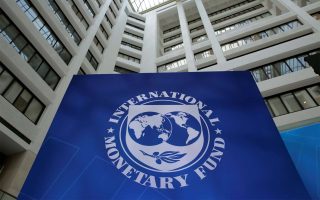The International Monetary Fund (IMF) has forecast a 2020 global contraction of 4.4 percent in its latest World Economic Outlook released this week, an improvement on the 4.9 percent contraction predicted in June when pandemic-triggered business closures were at a high.
Projections for the global economy are “somewhat less severe” driven by a quicker-than-expected rebound from COVID-19 lockdowns in advanced economies and China as well as signs of a more rapid recovery in the third quarter.
Some $12 trillion in fiscal support and unprecedented monetary easing from governments and central banks have helped maintain the flow of credit, limiting the damage from the pandemic to households and companies, and the support must be maintained, IMF chief economist Gita Gopinath said.
But there could be “long and unstable roadblocks to full economic recovery” while the outlook for many emerging markets has worsened, the fund warned Tuesday. Social distancing due to the pandemic is expected to continue into 2021 when the global economy will return to growth of 5.2 percent, the IMF said, predicting a global plunge in the transmission of the virus by the end of 2022.
The expected rebound will be slightly weaker than forecast in June, partly due to the extreme difficulties for many emerging markets and a slowdown in the reopening of economies due to the continued spread of the virus.
Economic “scarring” from job losses, bankruptcies, debt problems, and lost schooling will hold back medium-term global growth after 2021 to about 3.5 percent, with a cumulative loss in output of up to $28 trillion from 2020 to 2025 compared to pre-pandemic growth paths, the Fund said.
Even with robust fiscal and monetary support, ending the economic crisis depends on conquering the virus, Gopinath said. “The virus is resurging with localized lockdowns being reinstituted. Now, if this worsens and prospects for treatments and vaccines deteriorate, the toll on economic activity would be severe and likely amplified by severe financial market turmoil.”
There is a chance of a divergent path between wealthier countries and China, which are recovering more quickly, and poorer countries that “are headed towards worse futures than advanced economies,” Gopinath warned.
Beijing, which saw a strong early reopening and rebound from the pandemic, will be the only economy to show positive growth in 2020. But other emerging markets, which have to manage this crisis with fewer resources as many are constrained by elevated debt and higher borrowing costs, will see a contraction of 5.7 percent in 2020, worse than the 5.0 percent predicted in June.
These economies will need to prioritize critical spending for health and transfers to the poor and ensure maximum efficiency. They also need continued support in the form of international grants and concessional financing, and debt relief in some cases, the IMF said, adding that where debt is unsustainable, it should be restructured sooner than later to free up finances to deal with the crisis.








